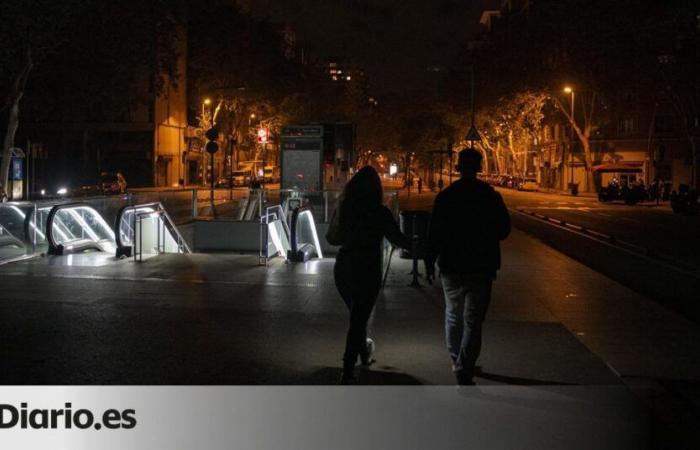
59.6% of citizens consider that the information that the government was giving during the blackout of April 28 “was insufficient”, according to a survey published this Saturday by the Center for Sociological Research (CIS).
28.4% consider that the information provided by the Executive was sufficient, says the progress of the aforementioned survey, prepared between April 29 and 30 from 1,752 interviews conducted by telephone in 47 provinces, with a margin of error of 2.4%.
The Government is still trying to collect data on the historical blackout suffered by Spain on Monday. This Thursday, the committee that investigates what happened sent “in writing” new requests aimed at the agents of the electricity sector to complete the reconstruction, in addition to collecting information “about the previous hours and those referred to the replacement process”, according to sources of the Ministry for Ecological Transition and Demographic Challenge.
“A large part of the information initially requested from the system agents has been received” but “given the technical complexity for obtaining certain data there are some that are still being collected by the agents,” the same sources said two days ago.
The PSOE continues to lead in intention to vote
Despite the results, the PSOE continues to expand the distance on the PP in 7.3 points and continues to lead the intention to vote with 34.8 percent, while the increase of Vox is consolidated and continues to be discharged.
The survey gives an estimate of the 34.8 % vote to the PSOE (2.2 points more than in the April barometer); 27.5% to the PP (1.4 more); of 15.9% to Vox (0.7 more); of 5.7% to add, which loses half a point as we can, with 3.4%.
In this survey after the blackout and, to the question of who would vote in some next elections, 19 percent of the interviewees respond PSOE; 15 % to the PP, 8.7 % to Vox and 3.1 % to add.
Personal impact
24.3% claim to have been affected “a lot” and 28.1% “enough”, while 33.4% lived it with little incidence and 12.8% declare not to have been affected.
As for the emotions experienced during electrical interruption, most did not feel fear: 21.5% of respondents acknowledge having felt it at some point, compared to 78% who did not experience it.
The lack of electricity in the home was the most missing by 62.1%of citizens, followed by the impossibility of using telephones (55.5%) and the Internet (26.3%).
62.1%of the respondents resorted to the radio to inform themselves during the blackout, being the National Radio of Spain (RNE) the most listened to (21.3%), followed by the SER chain (16.7%) and the Cope chain (14.5%).
Regarding emergencies, 53.5% remembers the European Union recommendation to have an emergency kit at home, although only 34.3% had one before the blackout.
Regarding preventive measures, citizens consider a priority to modernize the electricity grid (44.2%), invest in critical infrastructure (41.7%) and increase the number of generators in public services (32.6%).
Finally, the survey reflects a divided opinion on the creation of a specific ministry for emergencies: 47.2% see it necessary or convenient, while 49.3% do not consider it that way.





